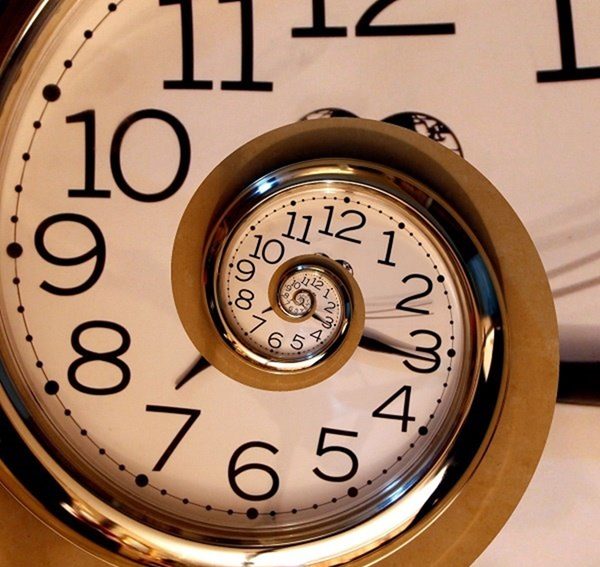Time is interwoven with life and brings it to death. Just as passengers on a ship are brought to harbor, even if they’re asleep and not aware of anything, so we’re all brought to the end of our life, naturally, with the passage of time. ‘You sleep and time runs away from you. You’re awake and you have things to do, but life’s being spent, even if you’re not aware of it. We’re all running a particular path, each of us hastening towards our end… Everything passes and is behind you… Such is life. Its joys aren’t permanent and its sorrows are fleeting. The path isn’t yours, nor are present things’[7].
Our age is nothing but the time of our life which has passed and become lost. Basil the Great says we’re happy to grow older and add years to our age, as if we’ve earned something. We consider it pleasing when a boy becomes a man and the man becomes an elder. But we forget that, each time, we lose from our life exactly the amount we’ve lived. We don’t feel that we’re expending our life, even though we always measure it in terms of the part that has passed and been lost.
Since we usually do not think about the inexorable presence of time, we are indifferent to its existence, or we even cut ourselves off from it and objectify it. Each of us may talk, for example, about the impermanence of human life, but we mean it as an objective observation which is not directly linked to ourselves. It is not difficult to conceive of the fact that our environment might alter or that others may, at some stage, cease to exist, but we rarely reflect that the very same thing is going to happen to us personally. We are accustomed to saying that everything passes and is lost, but we think it almost self-evident that we ourselves will be present to see the decline and the passing.
Objectification often creates serious misconceptions. In particular, objectifying time alters the meaning of life and leads to confusion and self-delusion. For us, time is not merely an objective process but a profound existential reality. Besides, time has less to do with objects and more with our personal existence. This is why only existential experience of time liberates us from the delusion created when we objectify it. A proper attitude to time is the fundamental requirement for a proper modus vivendi and modus operandi within the world.
Another basic misconception regarding the way we experience time is the following: people usually forget the meaning of their life in the present and seek it in an ever-awaited future. Unsatisfied with what they have, they nourish themselves on hopes for the future. ‘For thus is the whole of human life: not content with what has gone before, and nourished not so much on the past as on the future’ [8]. This is how we act and behave in the world: as if we are going to live eternally. And most often we complete the course of our earthly life while we are still at the stage of preparing for the future. In this way, the future becomes our oppressor, whereas the present is no more than the means to achieve our future goals and ambitions. It is treated as being merely a bridge leading to the future. And since what we experience is not the future, but the present, we are forever moving along the bridge, without ever reaching our goal.
This phenomenon assumed a more acute form from the end of the 20th century, with the surge in scientific advances, particularly information technology. People were faced with world-changing developments which surpassed their wildest dreams and intensify their expectations for the future even further. A global web of communication, with limitless flexibility in terms of location, facilitates communication and transactions, but which, at the same time, undermines our spiritual calm and our personal life. There is already talk of a new illness, information excess, which is caused by overloading the mind with information. And while we are being overladen with information, we are becoming poorer in terms of real edification. Our anxiety increases and our ability to concentrate, memorize and make decisions is eroded.
What we have said here regarding time and our life within it reveals a series of contradictions:
a) Although our life within time is dominated by it, it also manifests the possibility of transcending it.
b) While the time we live is presented as a measure of our life, it is simultaneously a measure of our demise.
c) Whereas we recognize that time is also the measure of our demise, we avoid recognizing the consequences of this for us, although we see them for other people or our surroundings, where, again, we are able to see its objective verification.
d) Finally, though what we experience is always the present, we consciously cultivate a temporal lack of focus. We have relocated all our interests into a future which recently has started to become chaotic.
[7] See Basil the Great, Homily on Psalm 1, 4, PG 29, 220D-21A.
[8] Basil the Great, Letter 42, 1, PG 32, 349.
You can follow us on Twitter, Facebook, Instagram, Telegram, or Parler















